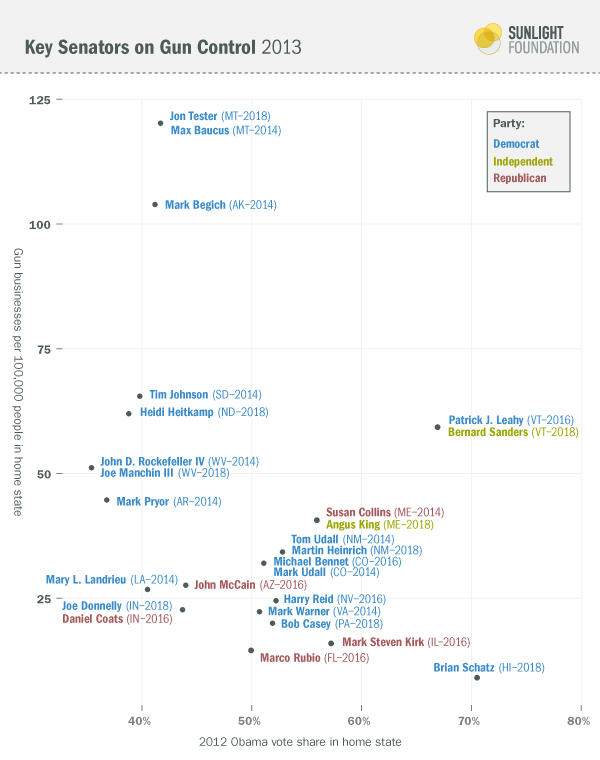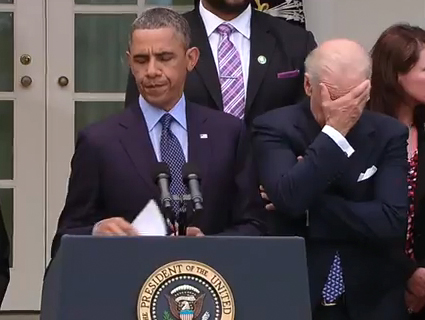
When reporters asked Sen. Max Baucus (D-Mont.) why he voted against an amendment to expand gun background checks on Wednesday, he replied, “Montana.” That may sound a bit obtuse, but in February the Sunlight Foundation was already on the case, charting the number of gun businesses per 100,000 people in the states of senators likely to be key to the gun vote. With 120 gun businesses per 100,000 people, Montana topped the list.
And Baucus is up for reelection in 2014. Montana Sen. Jon Tester, also a Democrat, voted for the bill, but he’s not up for reelection until 2018. Along with Baucus, Democrats Mark Begich of Alaska (104 gun businesses per 100,000 people), Heidi Heitkamp of North Dakota (62 gun businesses per 100,000 people), and Mark Pryor of Arkansas (45 gun businesses per 100,000 people) also voted no on Wednesday.
The Sunlight Foundation had predicted that Baucus would be one of four Democratic senators most likely to vote against gun reforms for the above reasons as well as the relative number of their constituents who supported President Obama in 2012. Sunlight also focused on Begich, Pryor, and Tim Johnson of South Dakota (66 gun businesses per 100,000 people).
Johnson, who announced in March that he would not run for reelection in 2014, voted for the background check amendment. All of the above senators’ states voted for Mitt Romney for president.

The Sunlight Foundation also took a look at how much money senators received from the National Rifle Association during their previous campaign. Baucus, who has an ‘A+’ rating with the NRA, topped the list among Democrats, accepting $7,450 in 2008. In 2010, Senate Majority Leader Harry Reid, who has a ‘B’ rating, took in $4,950. Joe Manchin, who has an ‘A’ rating and led compromise efforts on the background check amendment with Pat Toomey (R-Pa.), comes in third with $4,500 in 2012.
Begich and Pryor, who are both up for reelection in 2014, didn’t receive any donations from the NRA in 2008. (Begich doesn’t have an NRA rating; Pryor’s is a ‘C-‘.) Heitkamp, who has an ‘A’ rating, didn’t receive any NRA cash either during her last campaign; she’s not up for reelection until 2018.















